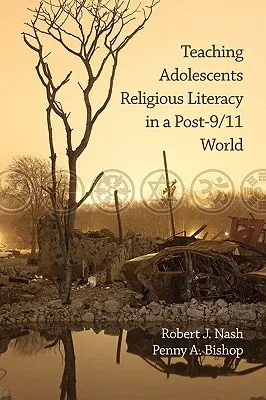For thousands of years, religion has been a key element of human
societies. Whenever we, as educators, exclude or minimize religion's
vast role in society, we leave out a large part of our world's shared
history. This is a serious act of educational omission, even neglect, on
the part of our nation's public middle and secondary schools,
particularly when adolescents are so ready to engage in meaningful
conversation about the world that surrounds them. Our book's central
purpose is to provide middle-level and high school teachers with the
necessary background knowledge and pedagogical skills necessary to help
adolescents become religiously literate learners and citizens.
Currently, there is no text like ours on the market that both covers a
number of world religions, and presents concrete recommendations for
teaching and learning this material. Our book is meant to educate the
following audiences: teacher educators, middle-level and high school
teachers in all content areas, administrators, school boards, and
parents. For us, educating for religious literacy is all about bringing
adolescents into the 21st century of teeming religious and spiritual
diversity-a long-neglected component of the multicultural curriculum in
public schools. In a post-9/11 world, religious literacy requires that
students understand the whats and whys of differing religious beliefs,
both in their own country and elsewhere. It means looking for
commonalities, as well as differences, between and among the great
wisdom traditions-both nationally and internationally. It is about
understanding how all of us might live peacefully in a religiously
diverse world. Our book accomplishes these goals by being informative,
practical, experiential, case-based, and, above all, accessible to
beginners.


